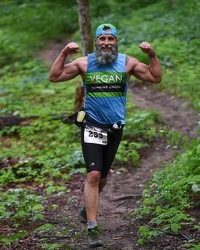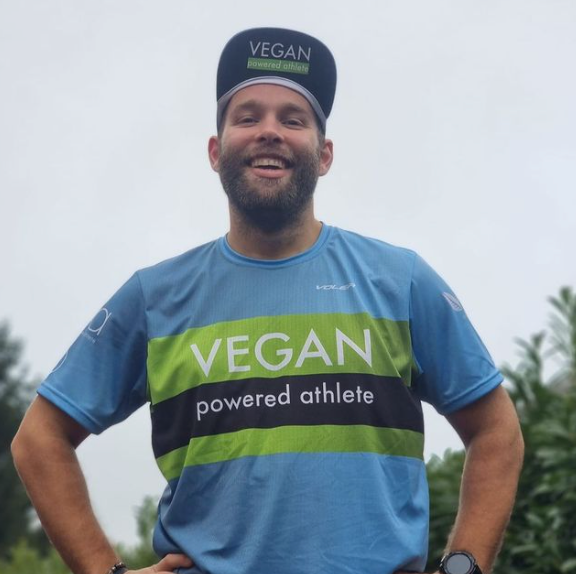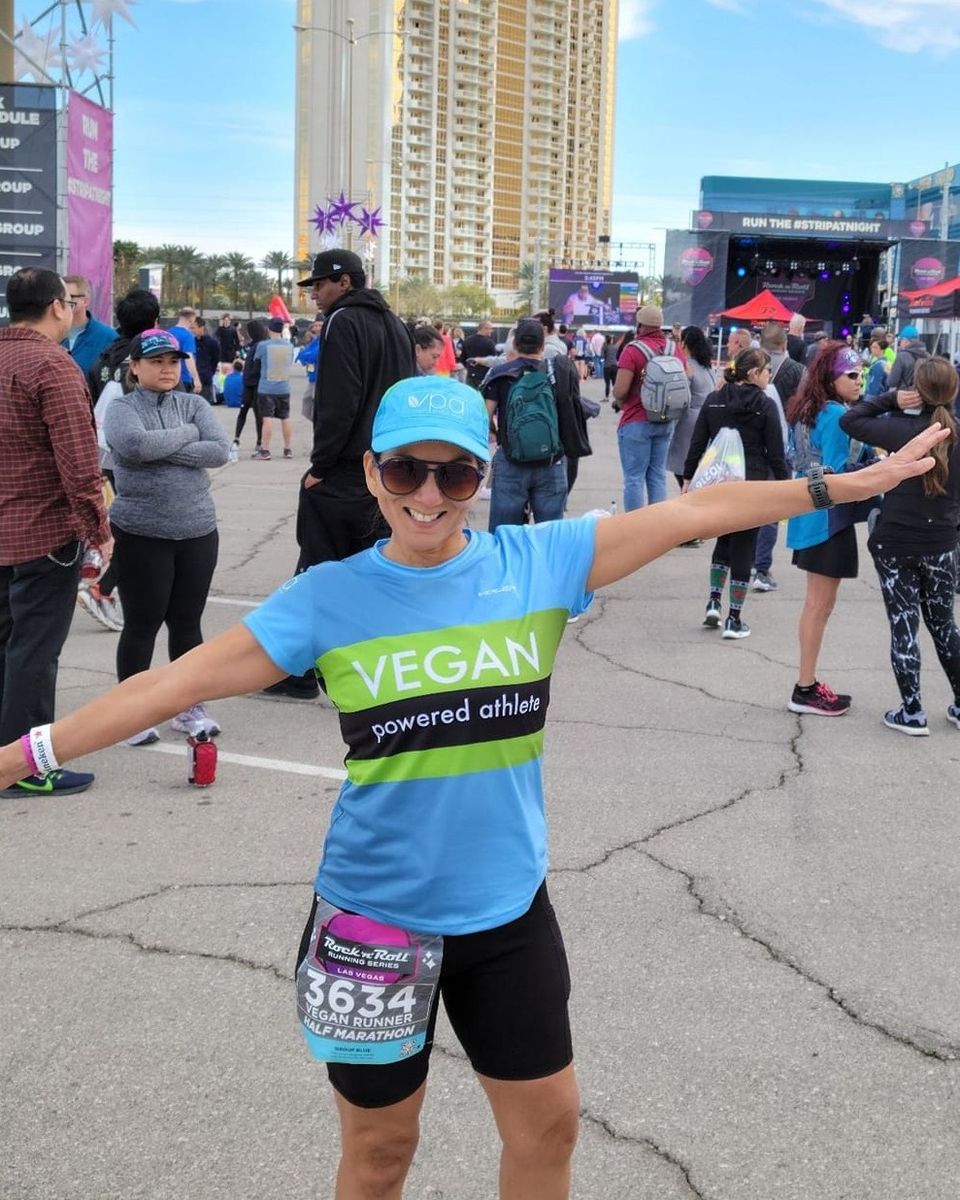The American track and field athlete won 9 Olympic gold medals in his career, and his greatest track and field performances was in 1991, where at the 1991 World Championships held in Tokyo that year, he set a world record in the 100-meter dash of 9.86 seconds.
With what, would you guess, does Carl Lewis credit the best year of his track and field career? It was his switch from a meat-eating diet to an all plant based diet. He made a choice to be a vegan endurance athlete and the results speak for themselves:
“My best year of track competition was the first year I ate a vegan diet.” -Carl Lewis
But in addition to better performance, Lewis cites another, more selfish— or we could say, more purely enjoyment-based— benefit of the vegan diet: he got to eat more food without it impacting his athleticism negatively.
It’s hard to follow a vegan diet and not increase a number of nutrients that are very helpful in supporting the vigorous lifestyle of an endurance athlete. More magnesium helps your body absorb and deploy calcium better, strengthening your bones. More potassium is essential in balancing the water and acidity in your body, especially during high stress activities like endurance exercise.
More folate helps your body process amino acids better, and helps repair cells and generate more red blood cells. (Think you’ll appreciate more of those halfway through a marathon run?) The increased Vitamin C and E in a typical vegan diet over a meat-eating diet helps repair tissue damaged by the stresses of endurance training.
All of the nutritional benefits of eating a vegan diet, including more vitamins and fewer inflammation-causing enzymes in meat and dairy, result in less inflammation, so you recover from workouts faster, and a vegan diet is thus easier on the joints as well.
A vegan endurance athlete virtually eliminates saturated fats from their diet increasing their cardiovascular health, lowering blood pressure, balancing cholesterol levels, and improving metabolism, helping them to be more athletic while at the same time decreasing their risk of heart disease and not to mention cancers for which eating meat are statistically significant risk factor.
Yet healthy fats from non-meat sources are still easy to get. Vegan endurance athletes can add vegetable oil or olive oil to their meals as a salad dressing, or stir fry vegetables in it, or even just brush it on veggies before cooking. Nuts and avocados are also high in healthy fats, and very rewarding to eat.
Vegan endurance athletes need to be sure they get enough carbohydrates, which is also easy enough with the right knowledge of nutrition and healthy meal planning. Some vegetables don’t have many calories, even though they are good to eat for their vitamin content, while many others contain lots of healthy carbs.
Endurance athletes need lots of carbs, so be sure to have plenty of rice, wheat, and oatmeal in your diet. Enough protein is also important and easy enough to get outside the animal kingdom, concerns and misconceptions held by non-vegans to the contrary notwithstanding. Legumes like peas, beans, lentils, and soy are great vegan sources of protein, as well as quinoa and chick peas (or garbanzo beans).
Make the choice to be a vegan endurance athlete if you’re not already, and see if eating a diet rich in many different plant sources of food doesn’t do for your athletic results what it did for Carl Lewis in 1991.







